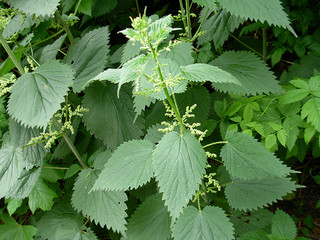Soy Lecithin: Friend or Foe
 If you eat chocolate, salad dressing, mayonnaise, drink tea or take supplements you may have noticed that soy lecithin is an added ingredient. Soy lecithin is one of the most common additives in our food supply. Why? Because it is a good emulsifier that helps products with water and oil stick together. We all love that smooth, velvety taste of chocolate. It’s the soy lecithin that helps the cocoa butter (fat) combine with the milk chocolate (dairy).
If you eat chocolate, salad dressing, mayonnaise, drink tea or take supplements you may have noticed that soy lecithin is an added ingredient. Soy lecithin is one of the most common additives in our food supply. Why? Because it is a good emulsifier that helps products with water and oil stick together. We all love that smooth, velvety taste of chocolate. It’s the soy lecithin that helps the cocoa butter (fat) combine with the milk chocolate (dairy).
What is Soy Lecithin?
Soy lecithin is a mixture of phospholipids and oils derived from soybean oil, phosphytidyle choline, phospholipids and glycolipids. Lecithin is naturally found in soybeans although it is often extracted using harsh chemical solvents. The major concerns regarding soy lecithin pertain to people with soy allergies and the issue surrounding genetic modification.
Is Soy Lecithin Safe For People With Soy Allergies?
There is a big difference between drinking soy milk or eating tofu and consuming soy lecithin in chocolate or a supplement. The amount of soy protein in soy milk, tofu, or soy-based protein powders is significantly higher than the amount in the food additive soy lecithin. According to Soy Lecithin: Why is it in Everything?, Amanda Green cites the Food Allergy Research and Resource Program (FARRP) says:
“Soy lecithin does contain trace levels or [sic] soy proteins and these have been found to include soy allergens. However, apparently, soy lecithin does not contain sufficient soy protein residues to provoke allergic reactions in the majority of soy-allergic consumers. Many allergists do not even advise their soybean-allergic patients to avoid soybean lecithin when it is included as an ingredient on food products. From this practical standpoint, we can surmise that most soybean-allergic individuals do not react adversely to the ingestion of soybean lecithin.”
The potential for soy lecithin to trigger an allergic response depends on the amount of the actual soy protein in the lecithin. That amount can vary. Chris Kresser, author of the Healthy Skeptic website reviewed several research articles pertaining to soy protein concentrations found in soy lecithin.
One analysis found protein concentrations ranging from 100 to 1,400ppm in six different soy lecithin samples. (For reference, the new FDA gluten-free labeling law requires a gluten concentration of less than 20ppm.) Another analysis of six different lecithin samples found that four had sufficient protein to trigger an IgE-mediated response in people with soy allergies, while two contained no detectable protein at all. However, another study performed similar testing and concluded that even if protein is present in soy lecithin, it’s not a significant allergen for people with soybean allergies. (Harmful or Harmless: Soy Lecithin)
With that being said, it appears safer for people with soy allergies avoid soy lecithin if possible. For people who don’t have a soy allergy, I generally recommend avoiding the most common forms of soy: soy milk, soy protein powder and protein bars with soy protein. The type of soy that is in these foods is highly processed, usually made from GMO soy and our immune system has a hard time recognizing it in this unnatural form.
GMO Soy Lecithin
Like most soybean products, soy lecithin is usually derived from genetically modified soybean plants. As most soybean and corn crops grown in the US are genetically modified it is difficult to avoid them completely. Unless the product you are consuming says ‘organic soy lecithin,” it is likely made from genetically modified soybean. Without getting into the discussion about GMO foods and the potential harmful effects, soy lecithin contains a very small amount of soy protein. According to Kresser,
“The DNA present is usually degraded to the extent that it’s impossible to tell whether the soy is genetically modified or not.” (Harmful or Harmless: Soy Lecithin)
So the risk of consuming GMO food verses a GMO food additive is different based on the quantity that you are consuming. Soy lecithin has such a small amount that it shouldn’t be a cause for concern.
Why is Soy Lecithin Used in Supplements?
Most of the soy lecithin found in supplements uses a purified form that contains less soy oil and more phosphytidylcholine–a phospholipids found in eggs and liver. Phosphytidylcholine can be beneficial in reducing heart disease, inflammation and cancer. One study found that after two months of supplementing with 500mg of phosphytidylcholine taken daily, total cholesterol levels by reduced by 42% and LDL cholesterol reduced by 56% in hypercholesterolemic patients. Phosphatidylcholine is often referred to as ‘lecithin’ in scientific research.
Choose Organic Soy Lecithin When Possible
For the average person, consuming soy lecithin in your diet is probably inconsequential. If there’s an option for ‘organic soy lecithin,’ I would chose that brand over the genetically modified. If you have a soy allergy it is probably best to avoid it all together.
Photo Credit: Chocolate Bar, by SliceofChic, Flickr
Edamame, by Kidmissile, Flickr
gmo, by decorat, Flickr








